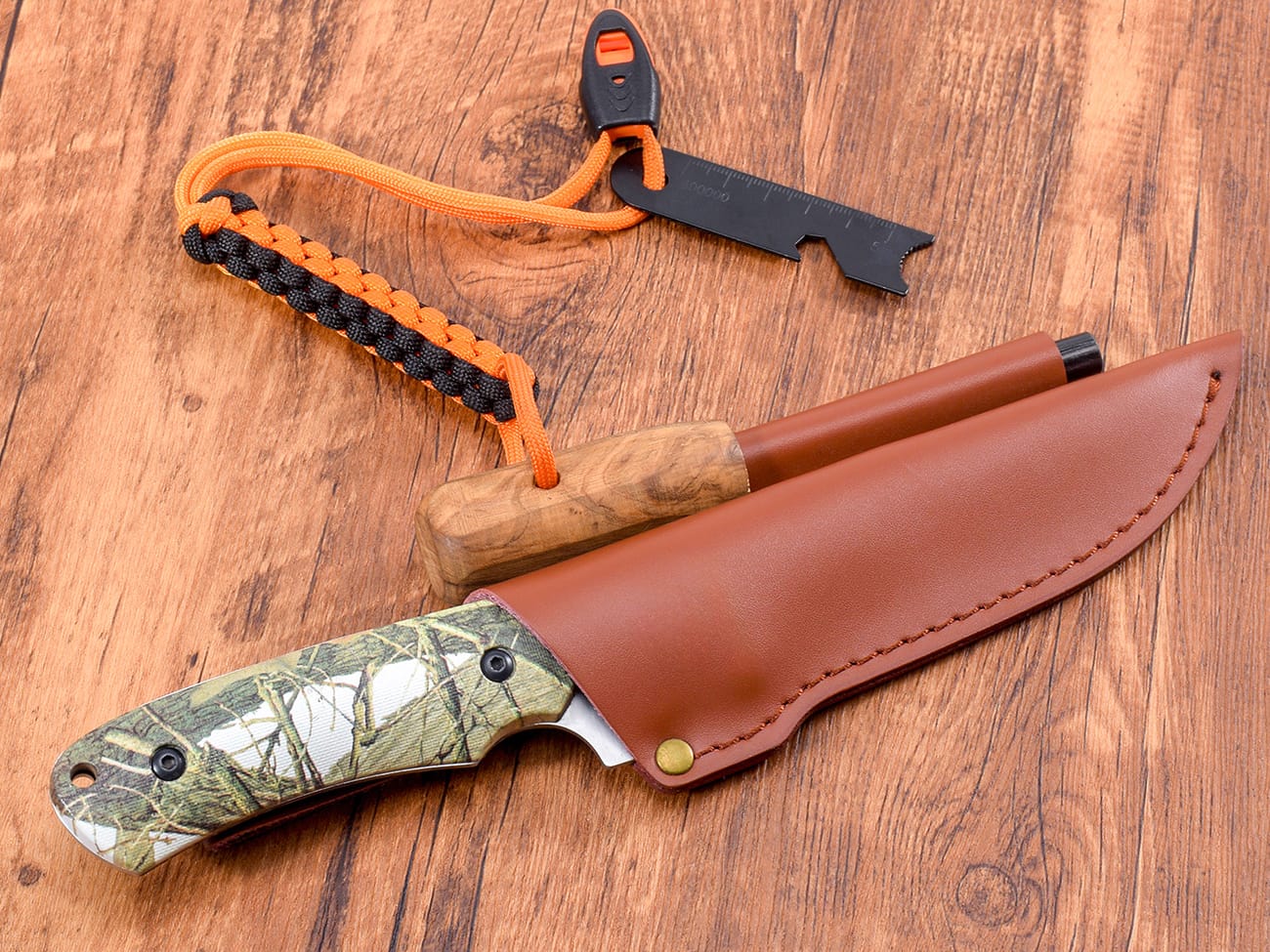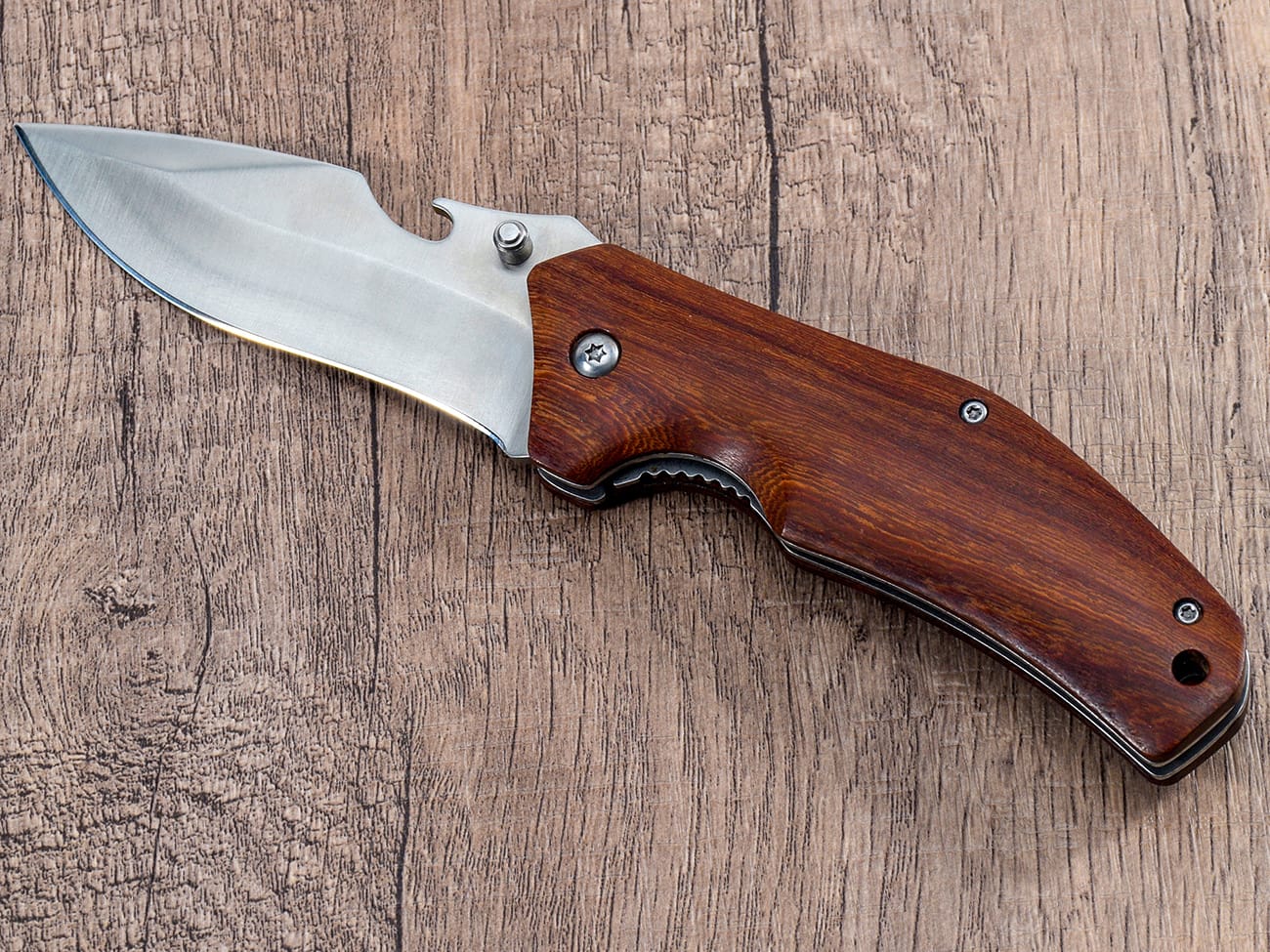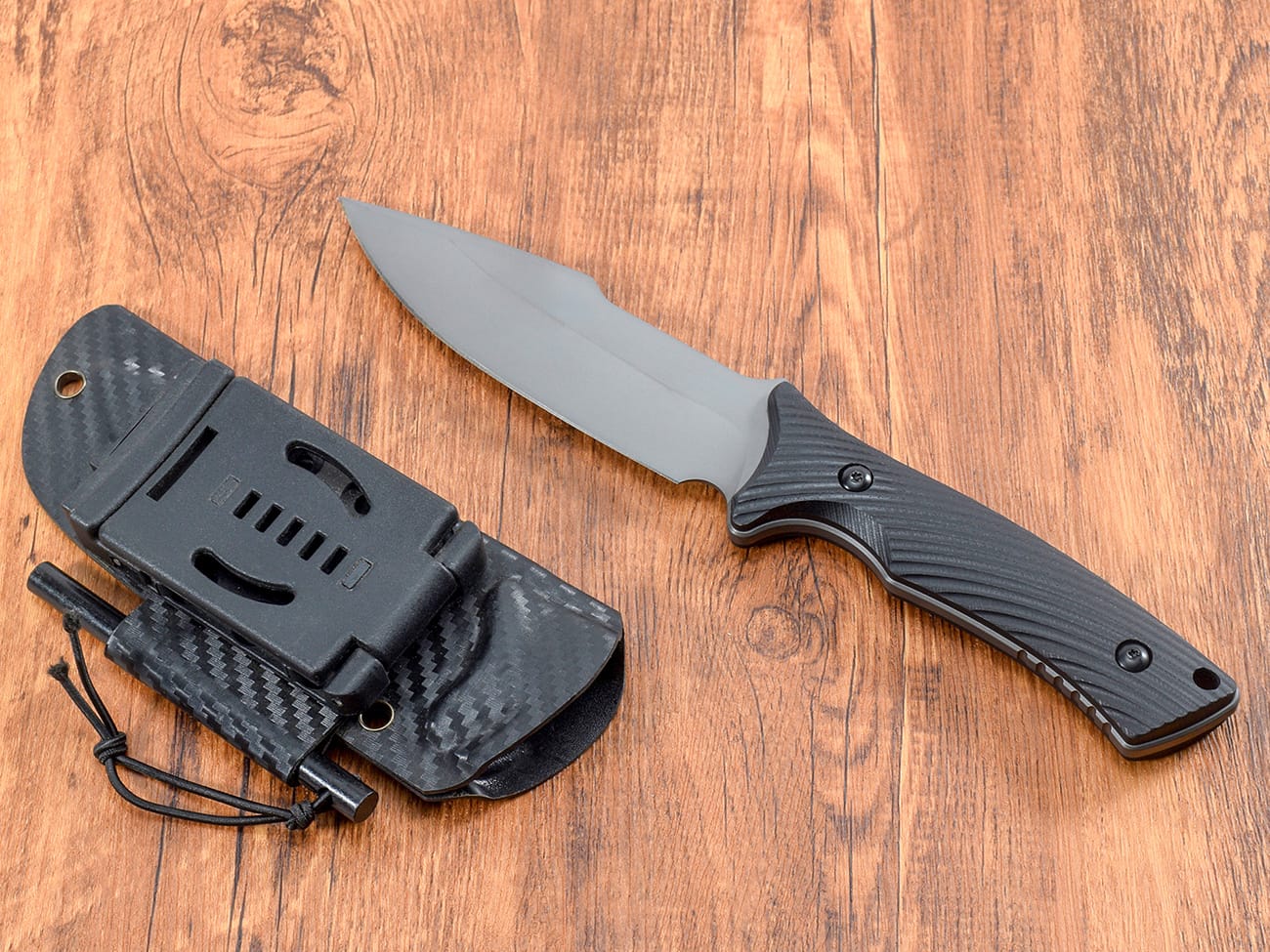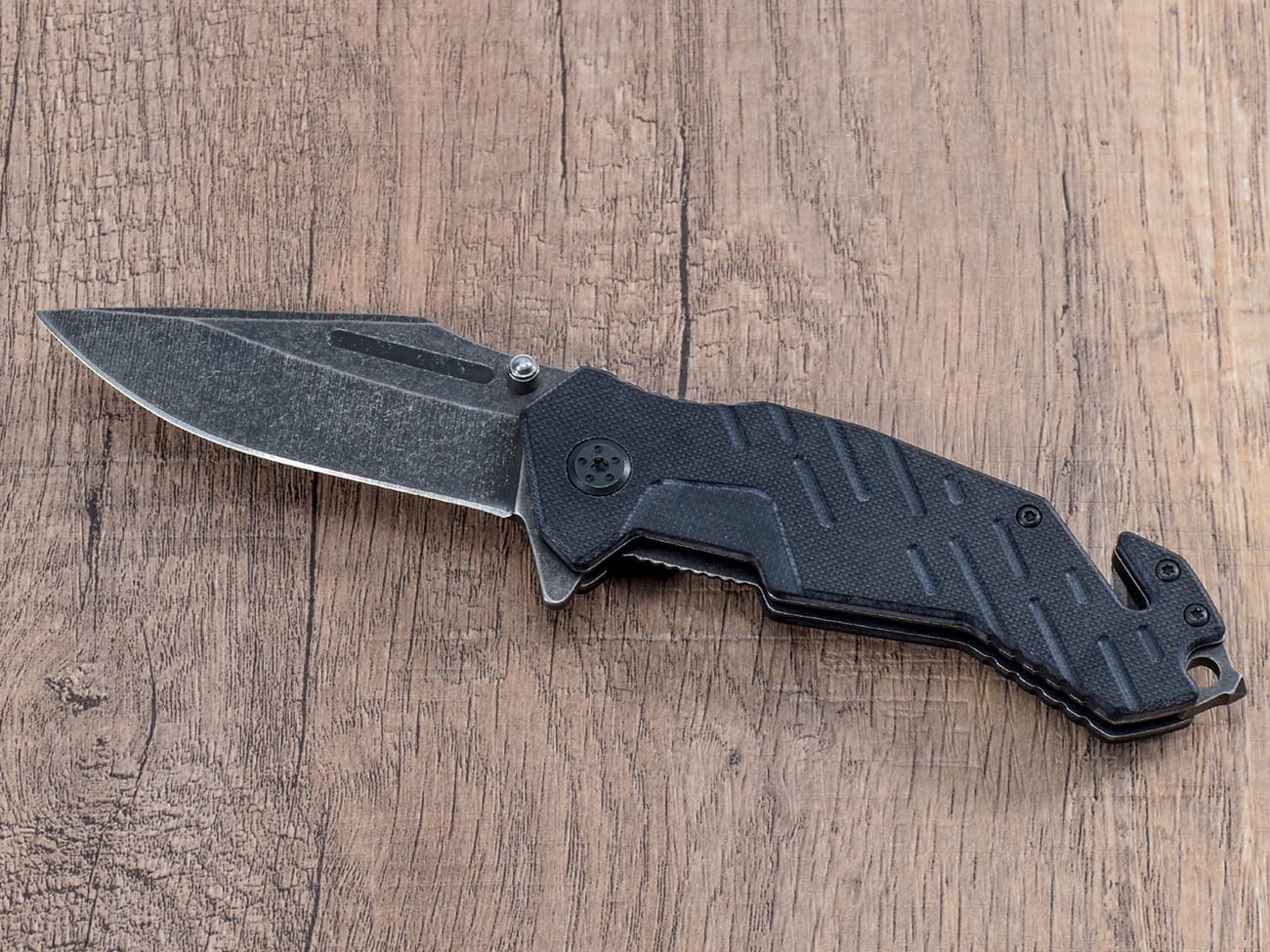A sharp hunting knife is essential for any outdoor enthusiast. Whether you’re field dressing game or performing camp tasks, knowing how to properly sharpen your knife can make the difference between an efficient tool and a dangerous liability. In this comprehensive guide, we’ll explore proven techniques and expert tips for keeping your hunting knife razor-sharp.
Why is Proper Knife Sharpening Important?
A dull knife is more dangerous than a sharp one, as it requires more force and can slip unexpectedly. Custom pocket knives require regular maintenance to maintain their cutting edge. Understanding proper sharpening techniques helps extend the life of your knife and ensures optimal performance.
What Equipment Do You Need for Sharpening?
Before you begin sharpening your knife, gather these essential tools:
- Sharpening stones of various grit levels
- Honing oil or water
- Leather strop
- Ceramic rod
- Clean cloth
- Angle guide (optional)
Fixed blade knives typically require different sharpening approaches than folding knives.
Understanding Knife Steel and Edge Geometry
The type of steel in your blade affects how you should sharpen it. Stainless steel blades require different techniques than carbon steel or Damascus steel. Most hunting knives maintain a 20-degree angle per side.
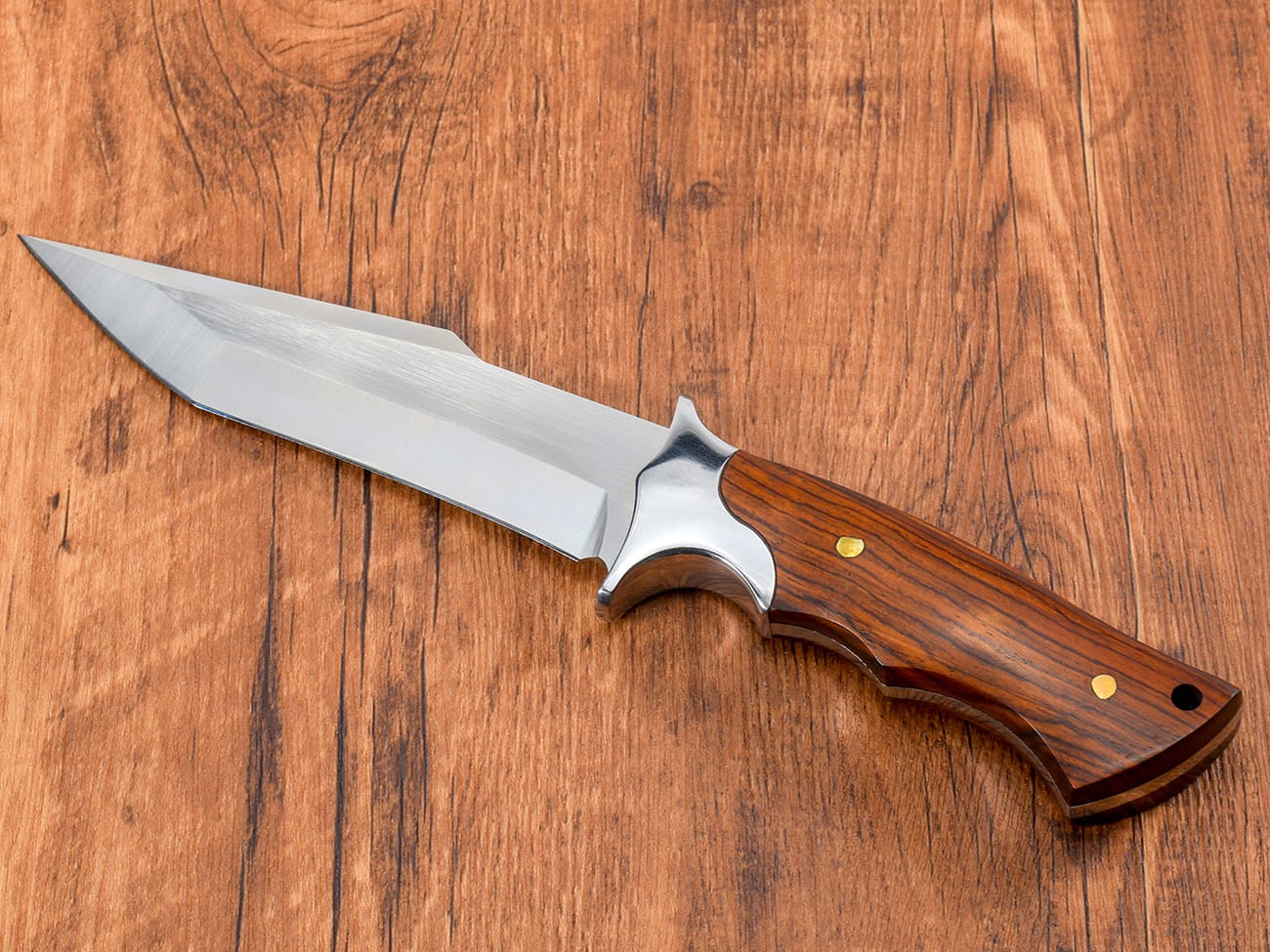
A properly sharpened hunting knife with the right edge geometry
How to Test if Your Knife Needs Sharpening?
Before you start sharpening, perform these simple tests:
- Paper test: Try slicing through paper
- Thumb test: Carefully feel for burrs
- Hair test: Attempt to shave arm hair
- Tomato test: Check if it easily slices through skin
Step-by-Step Sharpening Process
- Start with a coarse grit stone
- Apply honing oil to the stone
- Hold the knife at the proper angle (typically 20-degree)
- Draw the blade across the stone
- Maintain consistent pressure
- Flip the knife and repeat
- Progress to finer grit stones
- Finish with a leather strop
Common Sharpening Mistakes to Avoid
- Using incorrect angles
- Applying too much pressure
- Forgetting to clean the stone
- Skipping grits
- Not maintaining consistent strokes
- Neglecting to create a burr
Damascus blade knives require extra care during sharpening due to their layered construction.
Advanced Sharpening Techniques
For experienced users, consider these advanced methods:
- Using diamond stones
- Working with ceramic rods
- Employing professional sharpening systems
- Utilizing water stones
Maintaining Your Knife’s Edge
Regular maintenance extends the time between major sharpening sessions:
- Use a ceramic honing rod regularly
- Store the knife properly
- Clean after each use
- Avoid cutting on hard surfaces
- Use the right knife for the task
When to Use Professional Sharpening Services
Sometimes professional help is needed, especially for:
- Severely damaged edges
- Expensive custom knives
- Complex blade geometries
- Historic or collectible pieces
Essential Safety Tips for Knife Sharpening
- Always cut away from yourself
- Wear cut-resistant gloves
- Work in good lighting
- Maintain focus while sharpening
- Keep your workspace clean
Key Points to Remember:
- Start with clean, well-maintained stones
- Maintain consistent angles
- Progress through grits systematically
- Test edge frequently
- Use proper safety equipment
- Practice regular maintenance
- Store knives properly
Remember that proper knife care is essential for both safety and performance. With these techniques and regular practice, you’ll be able to maintain a sharp edge on your hunting knife for years to come.

